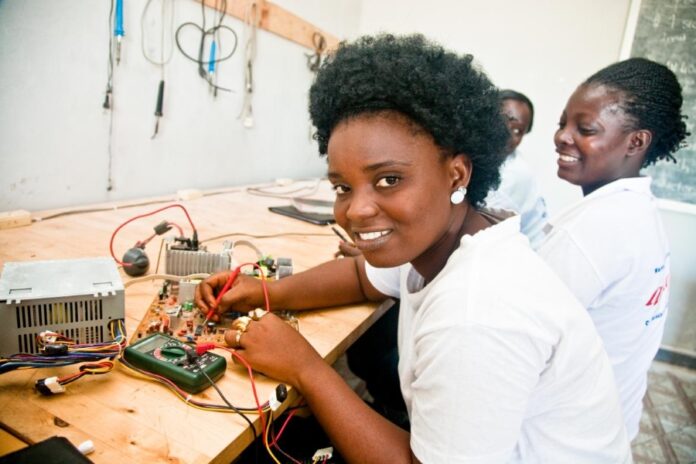A recent study by Ukhurebor et al. (2025) titled “The role of continuous engineering and scientific education for sustainable development in Sub-Saharan Africa: Insights from Nigeria” published in Journal of Infrastructure, Policy and Development, reveals that while engineering and scientific advancements have significantly contributed to sustainable development, current practices often pose environmental threats.
“
Engineering and scientific advancements have contributed to development, but current practices often harm the environment. – Ukhurebor et al. 2025
The article explores the importance of continuous engineering and scientific education for sustainable development in Sub-Saharan Africa, with insights specifically from Nigeria. The study emphasizes the need for a paradigm shift in engineering and scientific practices to incorporate green technologies and promote sustainability. The study highlights the role of education in fostering innovative solutions to environmental challenges, advancing sustainable development, and ensuring a green economy. The study also discusses the ethical responsibilities of engineers and scientists in addressing pressing issues like climate change, resource depletion, and pollution. The article advocates for integrating sustainability into professional codes of ethics and educational curricula to prepare future generations for sustainable practices.
How the Study was Conducted
The study was conducted as a perspective review, analyzing existing literature and real-world events to evaluate the impact of engineering, scientific, and technological practices on sustainable development in Sub-Saharan Africa, particularly Nigeria. The authors critically examined past unsustainable strategies that contributed to environmental degradation and proposed integrating sustainability into professional codes of ethics and educational curricula.
What the Authors Found
The authors found that while engineering and scientific advancements have significantly contributed to sustainable development, current practices often pose environmental threats. They emphasized the need for a paradigm shift towards integrating green technologies and sustainable practices into engineering and scientific education. This shift would promote a green economy and address pressing challenges like climate change, resource depletion, and pollution.
Why is this important
The focus on continuous engineering and scientific education for sustainable development is essential because it addresses urgent challenges like environmental degradation, climate change, and resource depletion. Sub-Saharan Africa, including Nigeria, faces significant environmental and economic issues due to unsustainable practices. By prioritizing education and incorporating sustainable principles into professional ethics and curricula, this approach ensures that future generations of engineers and scientists are equipped to create innovative solutions that protect the environment and promote economic growth.
Moreover, adopting green technologies and ethical practices contributes to a green economy, balancing societal needs with environmental health. This shift not only supports long-term development but also safeguards natural resources for future generations, creating a more equitable and sustainable world.
What the Authors Recommended
- The authors recommend integrating the TBL framework into the professional codes of ethics for engineers, emphasizing social, environmental, and economic accountability in decision-making.
- The authors suggest incorporating courses on sustainability, green technologies, and ethics into engineering and scientific education. This aims to equip future professionals with the tools needed to balance economic growth with environmental preservation.
- The study advocates for engineers and scientists to collaborate with professionals from other fields such as environmental science, economics, and sociology to effectively tackle sustainability challenges.
- Encourage professionals to find creative and ethical solutions to conflicts between the needs of clients or employers and the broader community or environment.
- Furthermore, the study stresses the importance of responsible exploration, exploitation, and management of natural resources to avoid further environmental degradation.
- In addition, the authors call for a focus on strategies and practices that ensure sustainable growth without compromising the well-being of future generations.
In conclusion, the study by Ukhurebor et al. (2025) underscores the critical role of continuous engineering and scientific education in driving sustainable development in Sub-Saharan Africa. By integrating sustainability principles into professional ethics and curricula, engineers and scientists can develop innovative solutions to pressing environmental challenges. Emphasizing green technologies, ethical decision-making, and interdisciplinary collaboration will not only foster economic growth but also ensure a healthier, more sustainable future for generations to come. Prioritizing education and responsible resource management is key to balancing development with environmental preservation, ultimately paving the way for a greener and more equitable world.
















 The African Research (AR) Index is a comprehensive scholarly directory and database focused explicitly on journal publishers that publish and disseminate African research.
The African Research (AR) Index is a comprehensive scholarly directory and database focused explicitly on journal publishers that publish and disseminate African research.

